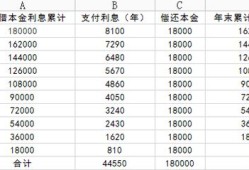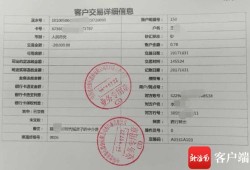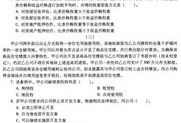房产权用英文怎么写的(房产的英文怎么说)
- 房产
- 2025-08-21
- 10
Understanding the English Terminology for Real Estate Ownership
In the world of real estate, the acquisition, possession, and transfer of property rights are fundamental concepts that are crucial for both buyers and sellers. When it comes to discussing these rights in English, it's important to understand the correct terminology. Below, we delve into the various ways in which "room ownership" can be expressed in English, as well as related terms that are essential for navigating the complexities of property law.
Ownership
The most straightforward term for "房产权" in English is "ownership." This encompasses the legal right to possess, use, and dispose of property. When discussing the transfer of ownership, one might say:
- "The property has been transferred to the new owner."
- "The buyer has full ownership of the property."
Property Rights
"Property rights" is a broader term that includes not only ownership but also the rights associated with owning a piece of property. These rights may include the right to rent, lease, mortgage, or sell the property. When discussing the scope of property rights, you might use:
"The property rights include the right to occupy the space."

"The deed of property grants the buyer full property rights." of a property refers to the legal document that proves ownership. In English, "title" is the term used to describe the legal right to possess a piece of property. When discussing the transfer of title, you might say:
"The seller has provided a clear title to the buyer."
"The title search revealed no liens or disputes over the property."
Deed
A "deed" is a legal document that transfers ownership of property from one person to another. In English-speaking countries, deeds are crucial for establishing and transferring property rights. When discussing the deed, you might use:
- "The deed was signed and notarized by both parties."
- "The buyer received a copy of the deed as proof of ownership."
Tenancy
"Tenancy" refers to the relationship between a tenant and a landlord, where the tenant has the right to occupy a property for a specified period. There are different types of tenancy, such as:
- "The lease agreement creates a tenancy at will."
- "The tenant holds a leasehold interest in the property."
Mortgage
A "mortgage" is a legal agreement between a borrower and a lender, where the borrower pledges the property as security for a loan. When discussing mortgages, you might say:
- "The buyer obtained a mortgage to finance the purchase."
- "The mortgage is registered against the property title."
Equity
"Equity" refers to the value of a property that the owner actually owns, which is the difference between the property's market value and the amount still owed on any mortgages or loans. When discussing equity, you might use:
- "The owner has built up significant equity in the property."
- "The equity can be used to secure additional financing."
Easement
An "easement" is a legal right that allows someone to use another person's property for a specific purpose, such as accessing a public road or running utility lines. When discussing easements, you might say:
- "The property includes an easement for utility access."
- "The easement does not interfere with the owner's use of the property."
Understanding these terms is essential for anyone involved in real estate transactions. Whether you are a buyer, seller, investor, or legal professional, knowing the correct English terminology for "房产权" and related concepts will help you navigate the complexities of property law with confidence.























